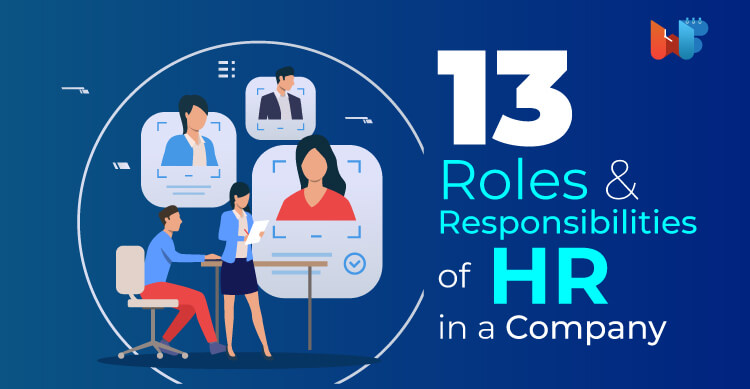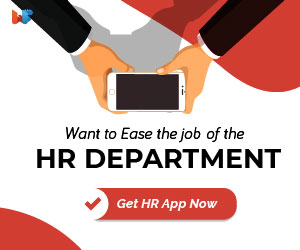Human resource is the corner stone of every company and they have many roles and responsibilities to bear on the shoulder. HR decisions and practices have a great influence in improving the organizational performance.
Many companies have underestimated the role and responsibilities of an HR in their firm in the first place but later paid for it in the long run.

HR department adds a lot of value to a company in terms of time and money management and of course employee management which is the key to productivity.The roles and responsibilities of HR are not just limited to a particular domain but it is spread over the overall functionality of a company.
Their role will slightly differ depending on the size of the company and type of industry but it is more than just administrative responsibilities which is a common misconception. It ranges from human resource planning, recruitment and selection, employee support and welfare to ensuring personal well being, health and safety of employees and a lot more.
Here let us have a look at some of the key roles and responsibilities of HR in a company’s day to day function and for the ultimate success and productivity in the long run.
Table of Contents
- Proactive human resource planning
- Recruiting the right candidates
- Flawless performance management
- Training and development
- Effective and timely career guidance
- Resolve conflicts
- Handling Rewards framework
- Ensure health and safety in workplace
- Maintaining a good work culture
- Administrative responsibilities
- Roles and Responsibilities of HR Executive
- Roles and Responsibilities of HR Recruiter
- Roles and Responsibilities of HR Manager
1. Proactive human resource planning

- This is one of the key roles of HR department that requires a very good understanding about the future requisites of the company.
- This is all about strategically planning the type of employees needed for the firm as well as the number of employees needed to get things done smoothly in the short run and long run.
- Understanding what the organization needs today and what it will need tomorrow and planning accordingly is the key and this in fact lays the foundation for all other HR functions.
2. Recruiting the right candidates

- This is a crucial function of HR professionals which may determine the future of project success and organization productivity. Setting up the right sourcing strategies and building a strong employer brand is the key to attract more qualified employees to the company.
- However, devising optimal strategies to filter and choose the right candidates with best potential gives the actual results.
- They have to make use of mass communication mediums to reach out to potential candidates and later aggregate, filter and coordinate the applications to find the relevant ones. Moreover, they should play the role of a mediator between a candidate/employee and company and bring in harmony.
3. Flawless performance management
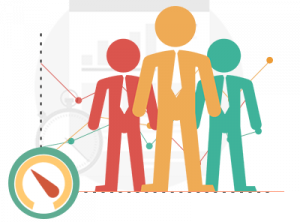
- Making sure that the employers are engaged and staying productive comes within the key roles and responsibilities of HR Creating opportunities for open feedback, good leadership as well as setting the goals clearly matters a lot to assure flawless performance management.
- This includes comprehensive annual performance review by managers and 360 degree feedback from subordinates, peers and even customers that rates where an employee stand and what improvement is needed to excel further.
- HR department can consider these values while choosing the right candidates for the firm in the next recruitment which makes things easy.
4. Training and development
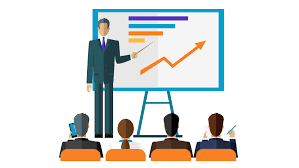
- Just like choosing the best candidates, giving them proper training and development in order to make them fit with essential skills for the changing needs of the organization is important.
- It is the role of HR to rightly use the budget kept apart for learning and development and distribute it optimally among the employees.
- Investing the money for the right employees and for the right skills is the key and HR professionals should be able to lead it in the right direction.
5. Effective and timely career guidance
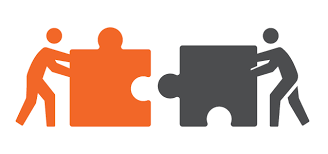
- HR department is expected to work on the proper career planning and guidance in a timely manner to get the best out of the employees.
- They have to engage and retain the right employees by helping them understand how their personal ambitions can work in line with the organization’s future.
- This is also important in building a stronger employer brand, higher productivity and better succession planning.
- Unlike in the initial times when they grade employees based on checklist performances, they are actively participating in their career growth by helping them to identify their areas of improvement and recommending specific action steps to see results.
6. Resolve conflicts
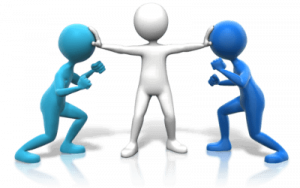
- This is one of the major areas that need the attention of HR people. Conflicts can occur at any time within an organization as people with different mindsets and diverse culture are working together as a team.
- If not resolved in a timely and efficient manner, such small conflicts can affect the harmony within the company which in turn can affect the productivity.
- It is the role of the HR manager to intervene at the right time and map out a solution before things get worse. Being judgmental is not advised and a proper investigation needs to be performed before coming up with a practical and unbiased decision.
- Strict actions have to be made against the defaulter and reimbursement can be asked for in case of any loss so that no one would dare to do the mistakes again.
7. Handling rewards framework
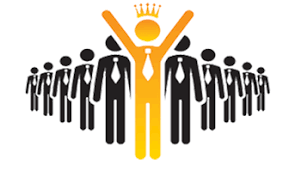
- Motivating the employees for the excellence in works gear them up to perform at their best every time. Rewards are not just about giving hike in salary but it is also about providing a good status and recognition and ensuring awesome growth and career opportunities.
- The roles and responsibilities of HR include assuring job satisfaction of employees in return of their hard work in terms of assuring a satisfying work-life balance and letting them know that they are valued.
Some of the functions in rewards management include:
- Formal performance appraisal
- Fair compensation and contingent pay
- Employee benefit management
8. Ensure health and safety in workplace
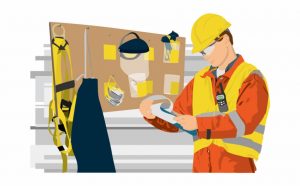
- Creating health and safety guidelines for employees and implementing it as part of company culture is a main function of HRM. Their role ranges from ensuring no cyber bullying at work to providing support for domestic violence victims.
- Moreover, they can even set up policies to foresee the personal well being of employees which offer a helping hand when things won’t go as planned for them.
9. Maintaining a good work culture

- This is a very important role of HR to assure utmost comfort for employees by ensuring a safe, healthy and fun working atmosphere.
- It would be good to have an open door policy where employees can communicate freely in a friendly ambiance and the working atmosphere is sure to enhance their performance to a great extent.
- Building a good rapport with the employees is important and policies should be developed to ensure that all employees are treated equal irrespective of caste and gender.
To ensure a good work culture, they have to do the following:
- Proper information sharing policies
- Developing job rotation policies
- Performing attitude surveys
- Building strategies for effective employee relations
10. Administrative responsibilities
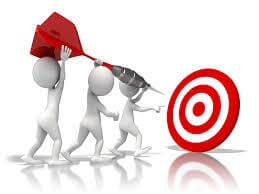
- Apart from the creative and strategic functions, HRM should also handle the administrative responsibilities which are very important for a smooth functioning of a firm.
- This includes everything from handling of relocation, promotions, performance improvement to ensuring discipline. The HR department has to work in unison to develop policies and procedures to handle the administrative functions without fail.
Some of the key responsibilities include:
- Development of workplace policies
- Compensation and benefits administration
- Setting rules for promotion
- Dealing with laws affecting employment
- Being aware of external factors
Read Also: 10 Benefits of Studying Human Resource Management in 2020
11. Roles and Responsibilities of HR Executive
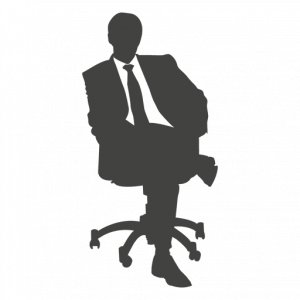 The following are the roles and responsibilities of a HR executive in a company.
The following are the roles and responsibilities of a HR executive in a company.
- Direct all hiring and training procedures for new employees
- Administer or change benefits, health plans, retirement plans, etc.
- Work with company CEO and/or Director to plan HR initiatives
- Monitor employee progress and stay up-to-date with company climate and culture
- Educate, train, monitor, problem-solve, and ensure that the company HR policy is followed across all employees, managers, and executives
12. Roles and Responsibilities of HR Recruiter
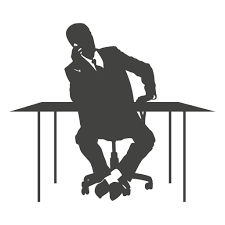 Here are some of the roles and responsibilities of a HR recruiter
Here are some of the roles and responsibilities of a HR recruiter
Roles
- Finding potential candidates
- Candidate screening
- Interviewing
- Conducting reference and background checks
Responsibilities
- Partner with hiring managers to determine staffing needs
- Screen resumes
- Perform in-person and phone interviews with candidates
- Administer appropriate company assessments
- Maintain relationships with both internal and external clients to ensure that staffing goals are achieved
13. Roles and Responsibilities of HR Manager
 The following are the roles and responsibilities of a HR manager in a company
The following are the roles and responsibilities of a HR manager in a company
Roles
- Recruitment
- Training
- Resolve conflict
- Maintain work culture
- Design and implement performance appraisals
Responsibilities
- Set objectives for the HR team and track progress
- Design and implement company policies
- Develop compensation and benefits plans
- Support and suggest improvements to the entire recruitment process
- Host in-house recruitment events
- Coordinate and supervise the work of specialists and support staff
Conclusion
If you are looking to become a great HR professional, you need to understand that there are no set guidelines for the roles and responsibilities of HR in a company. Even when the job description demands a few, the role is not just limited to it.
It needs more creativity, strategic planning and more importantly doing what is actually needed in an optimal way at the right time.
Some of the key skills quality HR professional includes:
- Teamwork and collaboration
- Decision-making skills
- Leadership and interpersonal skills
- Organizational skills
Unlike past days, modern HR professionals are considered as pillars or leaders of an organization and they are recognized for what they do.
The success of various initiatives within a company has unseen hands of HR specialists who adjust and monitor organizational activities in a timely manner. The mission, values, vision, and goals of a firm are not just framed in one day but as a result of constant and continuous effort and dedication of the HR team.
